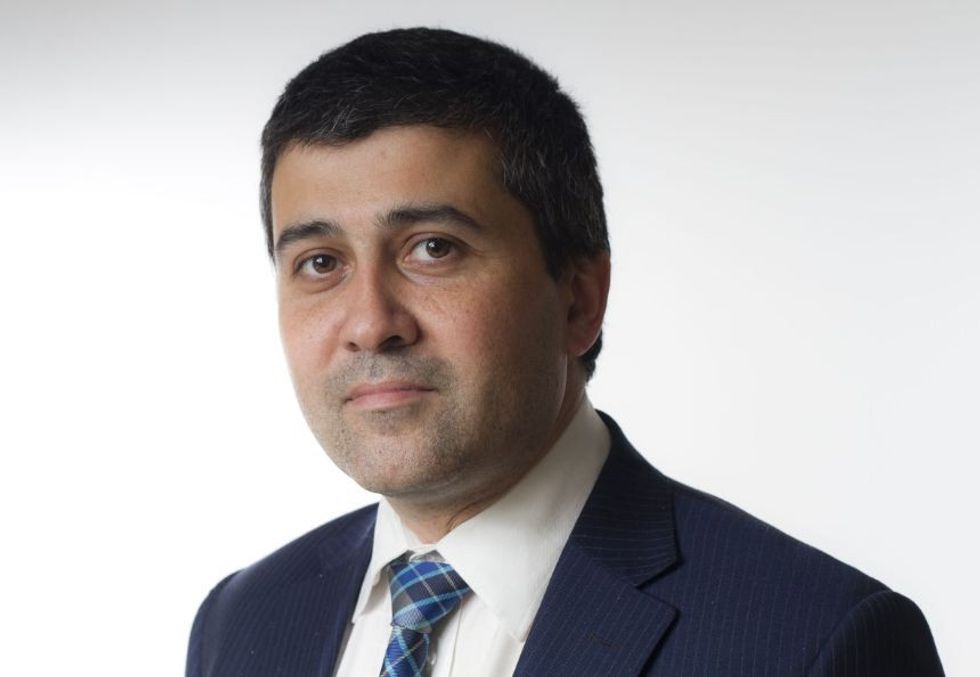By Sunder Katwala
Director, British Future thinktank
‘That word – the ‘P**i’ word – has real meaning for me. I don’t need to be told it’s not banter’, said Lord Kamlesh Patel, after becoming the new chair of Yorkshire County Cricket Club because the county’s leadership lost all confidence in its ability to act upon or recognise the racism experienced by former player Azeem Rafiq.
It was the depiction of racism as ‘banter’ which turned a slow-burning saga into a governance meltdown to rival any English batting collapse seen on the Headingley pitch. Health secretary Sajid Javid tweeted that ‘P**i is not banter. Heads should roll at Yorkshire CCC. If the ECB does not take action, it is not fit for purpose”. Each of his three points hit the stumps. With universal criticism of Yorkshire’s inaction, the chairman’s head was the first to roll, while the ECB stripped Headingley of its right to host England internationals until the club got its act together.
The multi-million pound financial consequences of the ECB decision will focus the board’s minds on compliance. The club has told ticket-holders that it is determined to restore its standing in time to host England against New Zealand and South Africa next year.
The new chairman will begin with a period of goodwill, even amid this crisis. He should use it to raise the bar on what success looks like. Though Yorkshire's cricket crisis unravelled in a week, it has been half a century in the making. Cricket missed the biggest opportunity for sport and racial integration in post-war England. Yorkshire was recurringly at the heart of that tragedy. A shared passion for cricket should have forged the strongest link between Commonwealth migrants and Yorkshire pride, but instead soured into a sporting sphere of parallel lives. Asian players were in their own leagues, frustrated at being off the radar of county scouts, while senior figures in the county game wondered aloud if any of them would really be good enough anyway.
A young Sachin Tendulkar played for Yorkshire, once the ‘born in Yorkshire’ rule was scrapped. But the county could not find a British-born Asian player to field in first class cricket before the 20th century was out. The first British-born Asian players for Yorkshire in 2004 heralded change, but the experiences of Rafiq and others show that cultural changes are needed.

Lord Kamlesh Patel appears uniquely placed to bridge this gulf. From 1960s Bradford to the House of Lords, his own experience of both opportunity and discrimination in cricket has informed the national game’s vision. As he told the Cricketer Magazine about his work forging an ECB strategy “Cricket is the only sport in England that has the south Asian community knocking the door down and we have been shutting the door!" Nobody else has both the ear of cricket’s governing classes and as much potential to secure a new hearing from communities across Yorkshire.
Lord Patel’s immediate challenges may include many more allegations in what may become a 'me too' era of testimony about racism in Yorkshire cricket. The club began new inquiries into multiple incidents last week - some acknowledged, and others denied - ranging from ignorant tweets to horrific bullying. So, Yorkshire may now need a Truth and Reconciliation model to move forward. Leadership from outside cricket to secure the trust of all participants, including those on the receiving end of harassment. Outgoing chair Roger Hutton spoke of the club’s impotence to deal with former employees, but the club should expect participation from ex-players who want to maintain a relationship with Headingley for big occasions.
The lens needs to go wider than the dressing room and cricket club culture. Losing sponsors like Yorkshire Tea symbolised the damage to the county’s reputation. The club should lead a listening exercise across Yorkshire, inviting everybody’s views on what must change to make Yorkshire cricket a source of shared pride for everyone in Yorkshire today.
Recent efforts to improve community engagement, particularly its new facilities in Bradford risk being damaged by governance failures. Could taking first-class cricket back to the Bradford Park Avenue ground become one key pledge for the new Yorkshire?
These are national challenges too. Cricket’s retreat from state schools and the big cities has taken in backwards with Black Britain over thirty years. British Asians still make up a third of grassroots cricketers, yet closer to one in twenty players in the professional game. Cricket must seize this crisis. It has lacked any national effort equivalent to football’s Kick It Out campaign, launched in the 1990s.
“Hitting racism for six” might be a good slogan - but the game should set itself a bigger vision for the 2020s too. In this next generation how can the cricket pitch, in Yorkshire and beyond, finally become the focal point of contact, shared identity and pride between people from different backgrounds that it has so far failed to be?





 Heehs describes two principal approaches to biographyAMG
Heehs describes two principal approaches to biographyAMG











 David Beckham wearing a David Austin Roses "King's Rose" speaks with King Charles III during a visit to the RHS Chelsea Flower Show at Royal Hospital Chelsea on May 20, 2025Getty Images
David Beckham wearing a David Austin Roses "King's Rose" speaks with King Charles III during a visit to the RHS Chelsea Flower Show at Royal Hospital Chelsea on May 20, 2025Getty Images
Sunder Katwala: Yorkshire may need a Truth and Reconciliation model